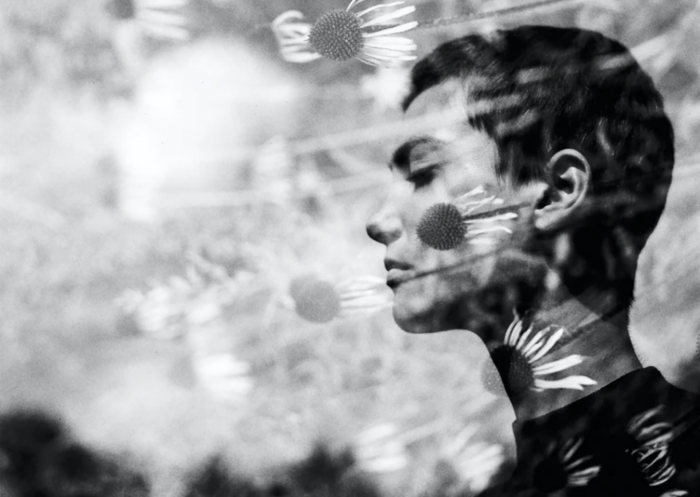This article is a follow-up to “5 Ways to Coach yourself through your Anxiety.”
Welcome back Dope Souls.
Thank you for joining me on yet another journey in conquering anxiety through self-love and small mindset shifts.
I will be your tour guide through the turbulent bumps on the road and manoeuvre you over those seemingly impossible-to-conquer roadblocks. So, get yourself comfortable, grab a cup of tea, and get ready to listen to your thoughts with love and compassion while ditching the shame and judgement.
The definition of mindfulness is “the quality or state of being conscious or aware of something.”
We hear the word often, and it makes sense, but does it really resonate enough to practice it? Are we actually aware of what mindfulness means and how to apply it as the most important tool in our anxiety tool kit? Let’s read that again and answer it for ourselves.
This is our first self-realization stop on our journey today. Take some time to think this over before moving on and if you want extra credit, journal on it first.
Now that we have gotten a glimpse of our own relationship with mindfulness, let’s tie it to our anxiety.
The first step to accepting our anxiety and coexisting with it is practicing mindfulness. I imagine what pops into your mind when I say “mindfulness.” You might imagine someone sitting in lotus position, meditating on the beach, feeling the vibrations of their “Ommm.”
While meditation is a great way to practice mindfulness, it’s not exactly what I mean when applied here. We will dive into mindfulness meditation at a later time, but for the purpose of our self-coaching anxiety tool kit, we will be working off the definition of mindfulness which is the quality or state of being conscious or aware of something.
So why start here? We start here because if we aren’t mindful of our thoughts, how can we shift them into something more positive? If we aren’t mindful of Anxious Annie or Adam creepin’ in, then how can we nurture and comfort them? Most of all, if we aren’t mindful of how we are treating ourselves for being anxious, then how can we begin to take the steps toward the kindness and compassion that we need to give ourselves in order to thrive?
Mindfulness is the foundation of our mental health structure. Once we create this foundation, we can build up the rest of our structure, thought by thought (or brick by brick). By practicing mindfulness in this way, we allow the thought to come in without fear, shame, or judgment, which takes off so much pressure and allows us to rewire (or shift) the thought from negative to positive.
Think of it as an opportunity to turn that thought into a brick for your structure. Your structure can be as big and as grand as you want to build it. Each brick that you lay is a celebration of you and the empowerment you feel over your anxiety. Each brick should be reflected upon and honored as a badge of courage and self-love. Each brick will shift your life for the better by opening up huge opportunities and so much self-love and confidence.
If you were to think about your bricks as they are right now in this moment, what do your bricks consist of? There is no right or wrong answer to this question. We have built our structures to the best of our abilities so far, but you may be thinking that it’s time for a remodel.
Now that we have the basics of the mindfulness tool, let’s try it out. Let your next anxious thought trigger your mindfulness foundation. Let’s say that initial thought is, “Oh no, I am feeling anxiety come on, but I don’t know why.” Allow that thought to trigger your mindfulness and use it for good (it owes you that much, at least, right?).
With your mindfulness foundation triggered, see if you can get to the root of the thought. Where did it come from? Is your anxiety an emotional reaction to something else? Are you scared of something? Are you bracing for the worst of something? Talk to your inner child and see if you can create some comfort for it.
Become aware of what you are thinking and become curious as to why you are reacting the way you are, to the thought of anxiety coming on. The obvious answer is, “Duh. Anxiety sucks, that’s why that thought makes me feel sick to my stomach.” But we don’t always think about the obvious answer—especially when it comes to our personal selves. That said, let’s take a closer look at that.
We know that we feel bad about anxiety coming on because we have had bad feelings or experiences with anxiety in the past. Because of this, we end up letting the thoughts of past experiences dictate the feeling of the anxiety right off the bat. We basically hand the keys of our minds over to our anxiety. “Here you go. Run my thoughts and my mind and tell me what to feel Mr. Anxiety.”
Well, maybe we aren’t actually that willing to hand over the keys, but now that we have become mindful of our reaction to that anxious thought, we now become empowered by an opportunity to snatch our power back from the thought. “Whoa, Mr. Anxiety. Hold on a minute. We haven’t gone through the whole scope of what we are supposed to be worried about, so let’s slow it down a minute and talk through this, before you get out of hand. Thank you. Buh-Bye.”
Now we can see why mindfulness is the number one most important tool in our self-coaching through anxiety tool kit. Your homework this week is to find your relationship to mindfulness. Take some time to get to know how mindful you have been in the past, in the present, and how mindful you want to become in the future.
Take an extra credit if you do the following exercise to strengthen your mindfulness. Sit outside and close your eyes. Try to identify as many sounds as you can in that moment. Feel the air and sun on your skin. Notice any tastes or smells that come up. Use your five senses to create a list. Each time you do this, try to add a new sensation. The more you do this practice, the easier the rewiring of your brain will become because it’s already wired to be mindful.
I would love to hear about your relationship to mindfulness. How has it helped you in your life? Have there been times when you wish you were more mindful? How would it have helped you if you were more mindful at that time.
Share your success with our community—we want to celebrate you both. Plus, you never know, your success might be the one small shift that someone else who suffers from anxiety needs to hear.
Until next time.
~


 Share on bsky
Share on bsky





Read 0 comments and reply